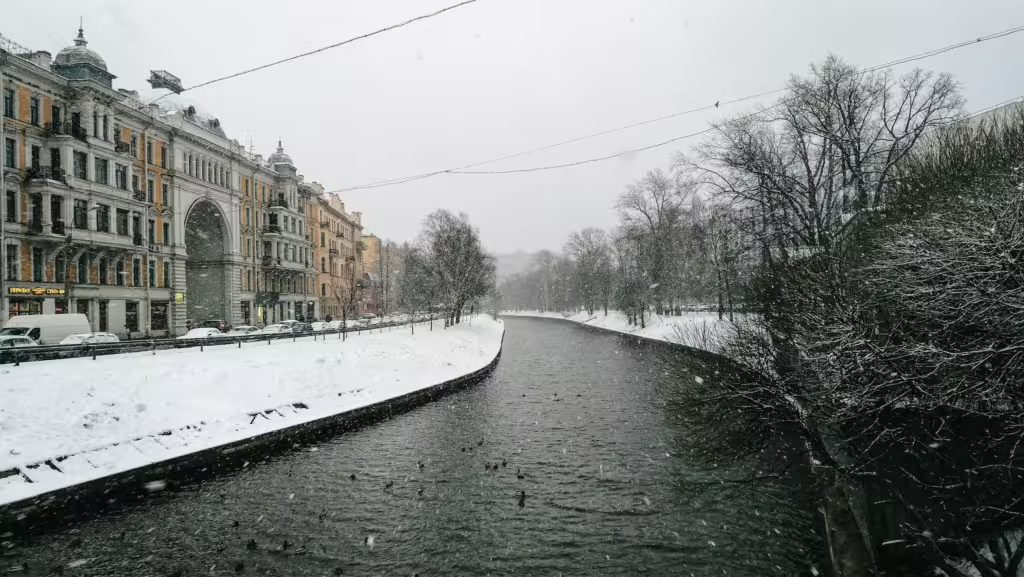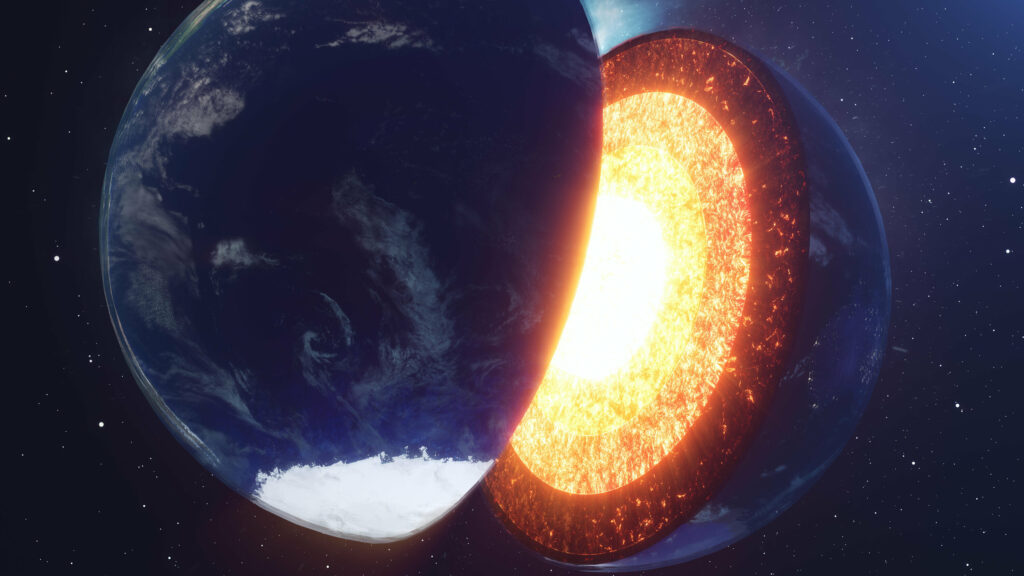The people who keep warning us that we are destroying the planet often forget how easy their flimflam is to spot. For instance a headline in Nature says “Climate change has slowed Earth’s rotation – and could affect how we keep time/ The effect of melting polar ice could delay the need for a ‘leap second’ by three years.” The problem is that the Earth is incredibly colossally huge and complex, weighing some 5.972168 sextillion tonnes, rotating on its axis at around 1,600 km/h while orbiting the sun at a staggering 107,000 km/h. Not only that, but its spin is eccentric, helping cause the so-called “Milankovitch cycles”. It is affected by its unusually large moon; its core is dynamic in ways we don’t really understand, most of these measurements are approximations and we know that Arctic ice has been shrinking and expanding in an irregular natural cycle since long before the invention of the polar bear. To take all these facts and declare that we alone have caused a change that can be measured to the precision of one second in three years is pure spin. And depends as usual on people not reading past the headline.
The herd of independent minds was all over this one, of course, from the UK’s Natural History Museum to NBC to Wired Middle East. And from time to time we note that journalists laying down the law on science, and seeking to banish non-scientists, often themselves lack formal credentials. For instance the NBC “science reporter” with the undergrad degree in… wait for it… journalism. In the case of the Nature piece it is not so. Elizabeth Gibney actually studied natural science at Cambridge, although her MSC is in “Science Communication” (from Imperial College London) and according to Wikipedia “She has been described as [a] ‘feminist science journalist’.” But arguably the communication or the activism took over from the science, and the skepticism of a journalist never kicked in because the piece is a weird mix of detailed information and credulity.
The phenomenon of leap seconds stands at the end of a long tale of refining the calendar. We’ve gone from the Julian to the Gregorian, added leap years, taken them out every 100, added them back every 400, and we were just warming up. Now, Gibney informs us, the issue is “leap seconds” which “are used every few years to keep UTC [“Coordinated Universal Time”] in line with the planet’s natural day.” Which sounds cool but is evidently something of a bummer in the digital era because computers hate them. And then things get even more complicated:
“Many metrologists anticipated that leap seconds would only ever be added, because on the scale of millions of years, Earth’s spin is slowing down, meaning that, occasionally, a minute in UTC needs to be 61 seconds long, to allow Earth to catch up.”
But now, apparently, we evidently have to skip such an adjustment and it’s our fault. Or is it?
Joel Achenbach thinks so in the Washington Post. And while we’re listing credentials, he has an AB in politics from Princeton. But if he’s confused, give some credit to the scientists involved. Achenbach writes that:
“‘Global warming is managing to actually measurably affect the rotation of the entire Earth,’ said study author Duncan Agnew, a geophysicist at the University of California at San Diego. ‘Things are happening that have not happened before.’”
Leaving aside the doubly split infinitive, a skeptical reporter would have asked “How do you know that? After all the Earth has often been much warmer than it is now, so how do you know what is happening truly is a first?”
He does not. Nobody does. Nobody could, even if they could know today that whatever happened is due to melting ice not some strange transcomputably complex flutter in the deep ocean currents or, for that matter, the liquid part of the Earth’s core.
What’s so weird is that the journalists often get stuff into their story that plainly tells them the thing they’re writing ought to be regarded with acerbic skepticism. Thus Achenbach includes:
“Earth doesn’t spin at a perfectly constant speed. Our planet is in a complicated gravitational dance with the moon, the sun, the oceanic tides, Earth’s own atmosphere and the motion of the planet’s solid inner core. Unhelpfully, Earth’s core is unavailable for close scrutiny and ‘is a bit of a black box,’ as Agnew noted.”
In which case how did he eliminate any possible uncertainty from its unclear behaviour and pin it on the ice with such precision? As he says, “when scientists try to describe what Earth is doing at any given moment, they have to factor in a lot of slop and wobble.” But apparently when they denounce climate change they don’t.
Just as nobody checks facts. Achenbach writes that:
“Twenty-seven leap seconds have been added to Universal Coordinated Time since 1972…. at the last tick of the clock on the night of Dec. 31. But hold on: Earth is not slowing down anymore. It’s actually been speeding up a bit. In fact, there hasn’t been a leap second added since the end of 2016. The melting of the ice caps in Antarctica and Greenland shifts mass – meltwater – toward the equator.”
What melting? Antarctica isn’t melting, and lately Greenland has been gaining mass. Oh well. You know. Climate. We are all going to die. Just one second later, it seems.
Scientific American also had the story, of course. They cannot send out an email these days without at least one climate story. And their author has a “Master of Science degree from Columbia University”. Or so Scientific American claims although her LinkedIn profile has “MS, Environmental/ Science Journalism” from Columbia’s “Graduate School of Journalism”, which isn’t quite the same.
For that matter, what on Earth a graduate school of journalism does to justify its existence is a mystery to us, journalism being a craft best learned on the job. But never mind. Anything climate is all us and all bad and all certain:
“As rising global temperatures melt Earth’s polar ice sheets, the shifting water is creating such a huge redistribution of our planet’s mass that its rotation speed is dropping. This unusual result of climate change is interacting with other forces that affect the planet’s rotational speed in ways that could ultimately even alter the way we keep time.”
Note again that she does realize this supposed melting of the polar ice sheets “is interacting with other forces”. But they are then relegated to the dustheap of journalism so we wretched humans can be blamed.
Meanwhile Gibney writes in her informative article that “Atomic clocks are better timekeepers than Earth, because they are stable over millions of years, whereas the planet’s rotation rate varies.” How and why? Well, situation complex:
“This reduction in the planet’s rotation rate is caused by the Moon’s pull on the oceans, which creates friction. It also explains, for example, why eclipses 2,000 years ago were recorded at different times in the day from what we would expect on the basis of today’s rotation rate, and why analyses of ancient sediments suggest that 1.4 billion years ago, a day was only around 19 hours long. But on shorter timescales, geophysical phenomena make the rotation rate fluctuate, says Agnew. Right now, the rate at which Earth spins is being affected by currents in the liquid core of the planet, which since the 1970s have caused the rotation speed of the outer crust to increase. This has meant that added leap seconds are needed less frequently, and if the trend continues, a leap second will need to be removed from UTC.”
Now if you think “the science” is “settled” on what’s going on in the Earth’s core, guess again. Like most normal fields of scientific inquiry, that one is wide open and very mysterious. It’s hard to get at, and our reconstructions of the processes and dynamics are all based on very hypothetical proxies. However climate science is different, and so:
“Agnew’s analysis finds that this could happen later than was previously thought, because of climate change. Data from satellites mapping Earth’s gravity show that since the early 1990s, the planet has become less spherical and more flattened, as ice from Greenland and Antarctica has melted and moved mass away from the poles towards the Equator.”
Again we ask, what melting? That bit about three years gives the impression that it’s all been worked out very precisely without margins of error and some guesswork on questions like what ocean currents are doing, or how much Arctic ice would have melted from its cyclical high point in 1979 without this thing called “climate change”.
Now to be fair to Gibney, she eventually gets around to admitting that her entire article is basically rubbish:
“Agnew’s paper is useful in making predictions, but Donley [“Elizabeth Donley, who heads the time and frequency division at the US National Institute of Standards and Technology in Boulder, Colorado”] says that there is still high uncertainty about when a negative leap second will be needed. The calculations rely on Earth’s acceleration continuing at its present rate, but activity in the inner core is almost impossible to predict, cautions Christian Bizouard, an astrogeophysicist at the International Earth Rotation and Reference Systems Service in Paris, which is responsible for deciding when to introduce a leap second. ‘We do not know when that means acceleration will stop and reverse itself,’ he says.”
But though it’s rubbish, it’s all in a good cause:
“Agnew hopes that seeing the influence of climate change on timekeeping will jolt some people into action. ‘I’ve been around climate change for a long time, and I can worry about it plenty well without this, but it’s yet another way of impressing upon people just how big a deal this is,’ he says.”
Glad you cleared that up.
P.S. If he’s “been around climate change for a long time”, and if he means the human kind (otherwise jolting people into action wouldn’t make sense), then when exactly did its pernicious effects supposedly kick in? That number appears to be considerably more unstable than the rotation of the Earth, which takes some doing.



Long before I owned a VCR,there was a program called Science International,which later changed it's name to "What Will They Think Of Next".
This non-scientist Gibney fits that description well.One minute explaining that we may need to stop adding "leap seconds" due to climate change,then
explaining why her whole premise is garbage.As well as the non-scientist journo from WaPo.More examples of twisted alarmist pretzel logic.
The state-funded fields of science and anything somewhat related are drowning in corruption from the annual trillion dollar climate hysteria windfall of borrowed (stolen) loot aimed at transitioning the remnants of liberal societies into totalitarian societies offering the elixir of climate salvation. Good humour always contains a strong element of truth and in this joke it's doubly so:
Q, Why is China unconcerned about climate change?
A. Because they already have a communist government.
The negative leap second, if real, is an interesting problem. You can move the clock on your computer forward with impunity, but if you move it backward then you may wind up with critical records that overlap or are out of sequence. I don't know how that will be resolved but blaming the problem on imaginary melting is not helpful.
The idea that arctic meltwater adding mass to the equator, thereby speeding the earth's rotation, is opposite to the truth. That mass has to be accelerated, and the energy comes from the rotating earth, slowing it. Conservation of momentum and all that.
Dan Thomas exactly, we all seen a ice skater pulling their arm in and speed up, and stop themselves by extending their arms.